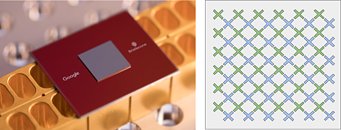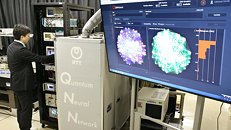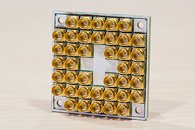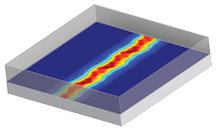
Google Unveils 72-Qubit Quantum Computer - On the Verge of Quantum Supremacy
(Editor's Note: Quantum supremacy may still be some years away as researchers strive to surpass the challenges of keeping such exotic systems stable and error-free enough for them to provide actually useful in more complex calculations. As complexity increases, so does the system's stability decrease, so researchers have to come up with novel ways of not only expanding the scope of the quantum computer, but also stabilizing it. That quantum supremacy is some years away should elicit a sigh of relief from users, as it means that our current encryption techniques will be relevant for that much more time; however, it's really only a matter of time before quantum-based encryption schemes are necessary to maintain the status quo. Of course, general purpose computers will - and do - keep on evolving and increasing in performance as well, so quantum supremacy may find itself chasing the goose, so to speak, for a little more time.)
The goal of the Google Quantum AI lab is to build a quantum computer that can be used to solve real-world problems. Our strategy is to explore near-term applications using systems that are forward compatible to a large-scale universal error-corrected quantum computer. In order for a quantum processor to be able to run algorithms beyond the scope of classical simulations, it requires not only a large number of qubits. Crucially, the processor must also have low error rates on readout and logical operations, such as single and two-qubit gates.
The goal of the Google Quantum AI lab is to build a quantum computer that can be used to solve real-world problems. Our strategy is to explore near-term applications using systems that are forward compatible to a large-scale universal error-corrected quantum computer. In order for a quantum processor to be able to run algorithms beyond the scope of classical simulations, it requires not only a large number of qubits. Crucially, the processor must also have low error rates on readout and logical operations, such as single and two-qubit gates.






